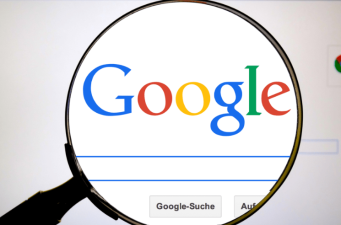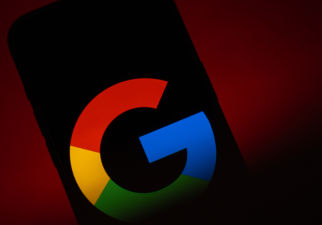On May 20, 2025, Google announced a major update to its search engine system at its annual developer conference, officially launching the "AI Mode", announcing that the tech giant, which had dominated online search for 20 years, was entering a stage of self-revolutionary deep transformation. Faced with the impact of emerging AI search tools such as ChatGPT and Copilot Search, Google has clearly felt unprecedented pressure to survive. The search overlord has begun to respond to the battle cry of the AI era in its own way, but this search engine revolution is no longer a technical iteration within a certain company, but a full-scale war about the reshaping of the industry landscape.
On May 20, 2025, Google announced a major update to its search engine system at its annual developer conference, officially launching the "AI Mode", announcing that the tech giant, which had dominated online search for 20 years, was entering a stage of self-revolutionary deep transformation. Faced with the impact of emerging AI search tools such as ChatGPT and Copilot Search, Google has clearly felt unprecedented pressure to survive. The search overlord has begun to respond to the battle cry of the AI era in its own way, but this search engine revolution is no longer a technical iteration within a certain company, but a full-scale war about the reshaping of the industry landscape.

The "AI Mode" launched by Google this time
is driven by its new Gemini 2.5 AI model. It no longer presents search information in the form of traditional link results, but directly generates answers in a chatbot-like way. Users can also upload personal photos for virtual fittings and even simulate shopping experiences. This design that fundamentally changes the user interaction logic is enough to prove that Google has realized that in the face of the rapid development of AI search alternatives such as ChatGPT, the original search model is aging rapidly. Even though Google still has a monopoly share of up to 90% in the global search market, it cannot withstand the deep shock brought about by this paradigm shift.
The key to the problem is that Google was forced to reform rather than taking the lead. Over the past year or so, OpenAI's ChatGPT has been continuously iterating, developing from a single question-and-answer assistant to a multimodal AI platform, covering functions such as text generation, voice interaction, video production, and shopping recommendations, and gradually penetrating into search, social, office, entertainment and other fields that were originally firmly controlled by Google. Microsoft, relying on its deep binding with OpenAI, quickly integrated AI capabilities into its Bing search and Edge browser, launched "Copilot Search", and quickly competed for users with open and login-free strategies. When the AI search field really began to surge, Google hesitated and waited within the wall, and lost the opportunity.
Behind Google's new AI model this time, it is not only an update of the technical route, but also a shake-up of the business model. Google relies on the huge income obtained by embedding advertisements in search results. In the AI mode, users get direct answers instead of jump links, which will inevitably weaken the click-through rate of ads and shake the foundation of its advertising revenue. This transformation is like a "self-cutting" operation: on the one hand, it must maintain the sense of the times and advancement of the search experience to avoid user loss; on the other hand, it must protect the sustainability of the advertising system and prevent revenue collapse. In such a transition, every step of Google will be on thin ice.

Why does Google do this?
In AI applications, it is no longer the only player. ChatGPT's GPT-4.5 version has memory and web browsing functions, can continue conversations, retain context, and integrates plug-ins and search engine capabilities, becoming a "universal entrance" for many users. Users no longer need to search, organize, and compare on different platforms separately, but can ask questions once and get answers. This "decentralized, de-linked" way of obtaining information is fundamentally reshaping people's relationship with the Internet. Search is no longer just a search, but an active dialogue, instant summary, and customized response.
Faced with such a trend, although Google is now hastily fighting, it cannot avoid the irony of its "follower" role from the outside world. In the first wave of the AI battlefield, Google's performance was disappointing. From the mediocre release of Bard, to the frequent product accidents in the early stage of Gemini, to the many criticisms of its API, documentation and compatibility by the developer community, all exposed the slowness and anxiety of this old technology company on the eve of the AI revolution. Although Gemini 2.5 is highly expected, no matter how the technical parameters are upgraded, it cannot cover up the fact that today's Google is no longer the industry leader that everyone responds to, but a behemoth struggling to chase the footsteps of others.
The deep essence of this search war is actually no longer about who is stronger or weaker in terms of functions, but a competition for control of user entrances. From PC to mobile, from search boxes to voice assistants, from page links to direct answers, every platform change is a power change. In the PC era, Google monopolized global information traffic by keywords, and in the mobile era, it continued to maintain its territory by relying on the Android system, but the entrance in the AI era may be a chat box, an image input box, or even the brain of a virtual assistant. The control of this entrance is being decentralized to OpenAI, Microsoft, and even new platforms such as TikTok and Xiaohongshu. Google no longer has absolute say.
Google's advantages
Google still has strong technical accumulation, a global user base, and deep integration capabilities for search and advertising networks. This makes it still have the potential to "make a final blow" even if it stumbles in the transformation. But potential cannot offset reality. The evolution of AI search engines is far beyond expectations, and user habits are changing more rapidly. With competitors galloping, Google's slowness and conservatism may lead to an irreversible decline.
It is foreseeable that the AI search engine war will not only determine the fate of Google, but also reconstruct the entire information ecosystem. As tools such as ChatGPT provide more and more personalized and structured content, traditional search engines will become increasingly marginalized. The reorganization of the advertising market, the redistribution of media traffic, and the replacement of platform-level applications will affect the entire Internet like an earthquake. For enterprises, whether they master AI search technology and whether they can be friendly recognized by AI recommendation systems will become the key to survival. For users, the change from "finding answers" to "being served" will be a complete change in digital life.
Google is using the "AI model" to revolutionize itself. This step is not only out of survival instinct, but also may become the watershed of its next victory or defeat. In this battle, there is no retreat, only change. Regardless of who wins or loses in the end, the old order of the Internet world has been shaken, and the prelude to a new era has been opened. Search is no longer just search, but a complete reconstruction of the way humans interact with information.

